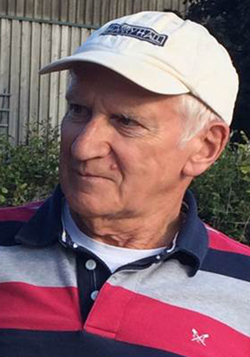We cannot let fear of being proved wrong prevent deep geological investigations, argues John Beswick
Beswick, J., De-risking UK geology.
Geoscientist 29 (2), 11, 2019
https://doi.org/10.1144/geosci2019-008;
Download the pdf here

I am prompted to reflect on the interesting article by Nadia Narayan and colleagues (
Geoscientist 28 (9), 2018) about karst geothermal resources and their potential source of hot water. I am an engineer, but I have been a member of the Geological Society for 40 years or so. During my education and career, I have obtained a lick of geology to justify my membership, but I always feel subordinate to the real geologists. In terms of geothermal energy, however, I am regularly asked about projects that seem attractive on paper based on a geological prognosis, but are still very risky for an investor.
Confusion
Interpretation of deep geology, and particularly hydrogeology, from maps, sections, geophysical data and outcrops usually results in various eloquent prognoses by geologists. However, the more you ask about the detail or the more geologists you ask, nice as they are, the more confused you get. Advising clients on the commercial viability, therefore, in most cases is impossible.
Some potential geothermal resources are focused in buried Carboniferous Limestone areas. If the formations were karstic, a geothermal well might tap significant quantities of hot water that could have a real benefit for some industries that need heat, or for homes and business premises—and at the same time help replace the need for fossil fuels.
Conversely, they may not. In terms of hydrogeology, the actual compared with the prognosis can be very different.
Reputational damage?
The oil-and-gas industry provides some data that are important for understanding the deep geology, but the industry doesn’t always focus on areas of interest for geothermal development or other sub-surface interests and is also itself risk averse at times. The UK’s deep geology is complex, which prompts the question of why there is now no national investment in more deep-stratigraphy boreholes to give ground truth to all the indirect methods for interpreting deep geology? The last deep stratigraphic borehole was the Winterbourne Kingston in Dorset, drilled in 1976. This begs the question, are the geologists of today frightened of damaging their reputations by pursuing some real exploration in terms of deep drilled and cored boreholes, strategically sited to help untangle some of these conundrums and create a better-quality database?
Of course, this is the probably the bailiwick of the British Geological Survey and other academic institutions, so can they be brave enough to ask for the necessary funds from the various funding agencies, and not just a few bob for a field trip armed with rucksack, hammer and pub guide, that results in a report or paper, but funds for geological exploration that can de-risk some of the key questions about the UK’s deep geology? Some of these geologists, a few of whom sit behind computers playing with visualisations, have spent years studying particular topics and may be proved wrong—that may deter the faint hearted! However, the venture is worth it if there are potentially significant commercial benefits on offer that would allow investors to seriously think again about geothermal and other projects.
John Beswick, Director, Marriott Drilling Group; e-mail: [email protected]